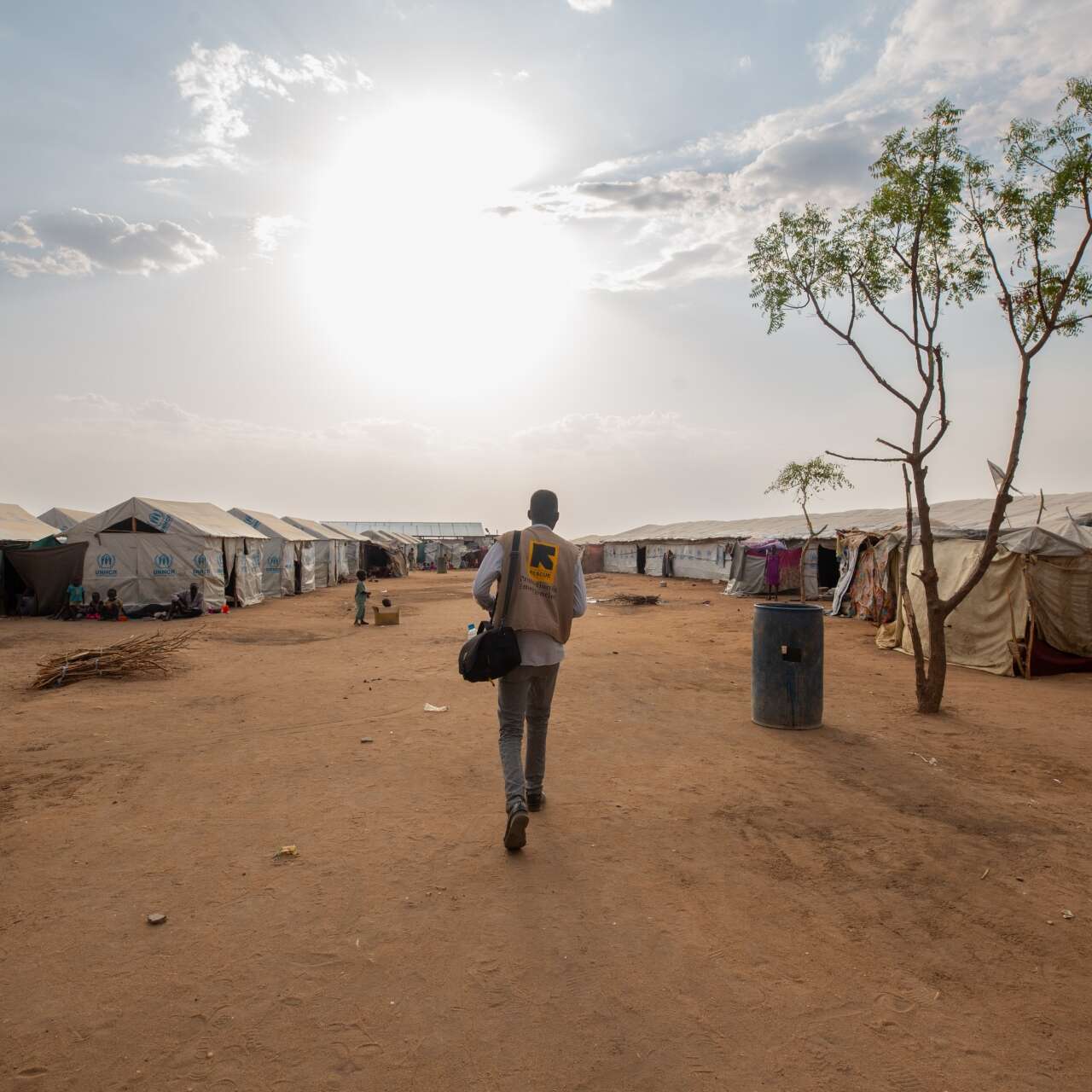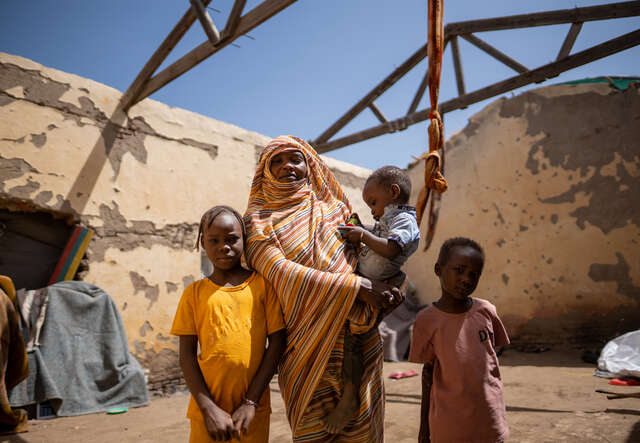
How Eatizaz Yousif leads a critical humanitarian response in Sudan
Amid the largest humanitarian crisis ever recorded, the IRC’s Sudan country director ensures her team continues to support people and find hope.

Amid the largest humanitarian crisis ever recorded, the IRC’s Sudan country director ensures her team continues to support people and find hope.
Since the war started in April 2023, Sudan has become the biggest displacement crisis in the world. Over 12 million people have had to leave their homes, both inside and outside the country. On top of that, 25 million people in Sudan are struggling with a hunger crisis.
With limited media coverage and only 65% of humanitarian aid response funded, the challenges were immense for IRC country director Eatizaz Yousif and her team. To make matters worse, 99% of the International Rescue Committee’s national staff were either impacted or forcibly displaced.
Against all odds, Yousif’s small yet determined team rallied just days after being displaced to establish a fully operational healthcare facility, providing critical support to Sudanese families. Since then, their efforts have only expanded, reaching even more people in desperate need. Dive into Eatizaz’s remarkable first-hand account to learn more.

When violent conflict erupted in Eatizaz Yousif’s community in Khartoum, herself and her entire team were forced to flee their homes. But displacement would not stop her from remaining committed to her role as the IRC country director and to the people of Sudan.
Though the size and scale of the team had significantly reduced, those who had successfully relocated to Al Jazeera State immediately began setting up an emergency response in their new location.
“At that time, there was no internet, no banking system,” Yousif recalls. “But despite that, we overcame all of the scaling.” Using their own cars to move around and recruit volunteers, the dedicated team established an emergency response within less than one month of the conflict breaking out.
“For me it’s one of the proudest moments ever,” states Yousif with a smile. “That we managed to provide that support as quickly as we could despite all of the issues that we were facing as first responders.”

Adapting to the dangerous and ever-changing conditions, Yousif’s team have opened and closed various offices and deployed mobile medical teams to reach more families with critical care. “It is really very, very difficult for the frontline workers to be themselves displaced and also heavily impacted by the recent conflict,” she explains.
However, their commitment to helping their fellow citizens during this harrowing time is unwavering. “We are trying to reach whatever population we’re able to reach and to provide services despite all of the access issues or impediments that we are navigating.”
“You’ll see our medical team moving all over, providing and distributing dignity kits and trying to create safe spaces for women and children," says Yousif. "When you see all of those happy faces with a smile, you feel that it’s rewarding.”

Yousif’s role as country director also means being a vocal leader and advocate for her staff and her country. “I’m really a sounding board to ensure that the Sudanese get the dignified services they deserve,” she asserts.
Channeling her frustration at a lack of media attention and funding, she is fighting for more awareness of the situation, as well as humanitarian resources and support. “The need is so massive and huge, while the funding is so little compared with the large scale of the crisis we have, and is not adequate to support us in scaling up and expanding.”
Eatizaz has been displaced three times herself, including from Khartoum where she lived with her family—whom she was able to send outside the country to keep safe.
“Since then, I’ve been living in my suitcase,” she says. “I’ve been moving to different locations. I count that I’ve slept in over 50 beds since the conflict started.”
For Yousif, displacement took away a sense of dignity, something she recognizes all displaced families unfortunately experience. “When it happens to you, it’s something that really requires time to digest and absorb," she explains. "It is a feeling that no one can feel unless people go through that.”
The conflict has also separated most of the team members from their families. “There is no place we call home anymore that you go to at the end of the day or this year. Most of us are living in shared accommodation or shared houses.”

While it seems impossible to hope in the midst of such dire circumstances, Yousif manages to hold on—both metaphorically and literally. Despite it being almost two years since she was forced from her home, she still carries the key with her everywhere she goes.
“When I’m carrying this key, I still have a sense of belonging,” Yousif explains. “And I still feel that I have a house and a place I will go to—I guess it’s part of my identity. Because when you carry your key, you’re confident that you’re going back and you can open that door. But if you let it go, then you’ve lost that hope.”
In response to increasing needs, the IRC has scaled up its humanitarian efforts despite immense challenges and security concerns. We are supporting Sudanese communities, both within the country and across national borders by delivering health and nutrition services, women and children protection services, livelihood assistance through multi-purpose cash and an integrated water, sanitation and hygiene program.
Shortly after conflict broke out in April 2023, the IRC established a presence in Wad Madani, Al Jazirah state where we delivered health and nutrition services to internally displaced people fleeing Khartoum until we were forced to close the office and relocate our staff. We are currently operational in Blue Nile, Khartoum, Gedaref, River Nile, South Kordofan and White Nile states, and have an office in Port Sudan.
We are delivering direct support to clients in accessible areas of Khartoum, as well as indirect support through our locally-based community partners.
Donate now to support the IRC's life-changing work in Sudan and worldwide. We are on the frontlines providing critical aid to crisis-affected people in more than 40 countries, including places on the 2025 Emergency Watchlist.
Read more about the top 10 crises the world can’t ignore in 2025 and learn more about the IRC's 2025 Emergency Watchlist.